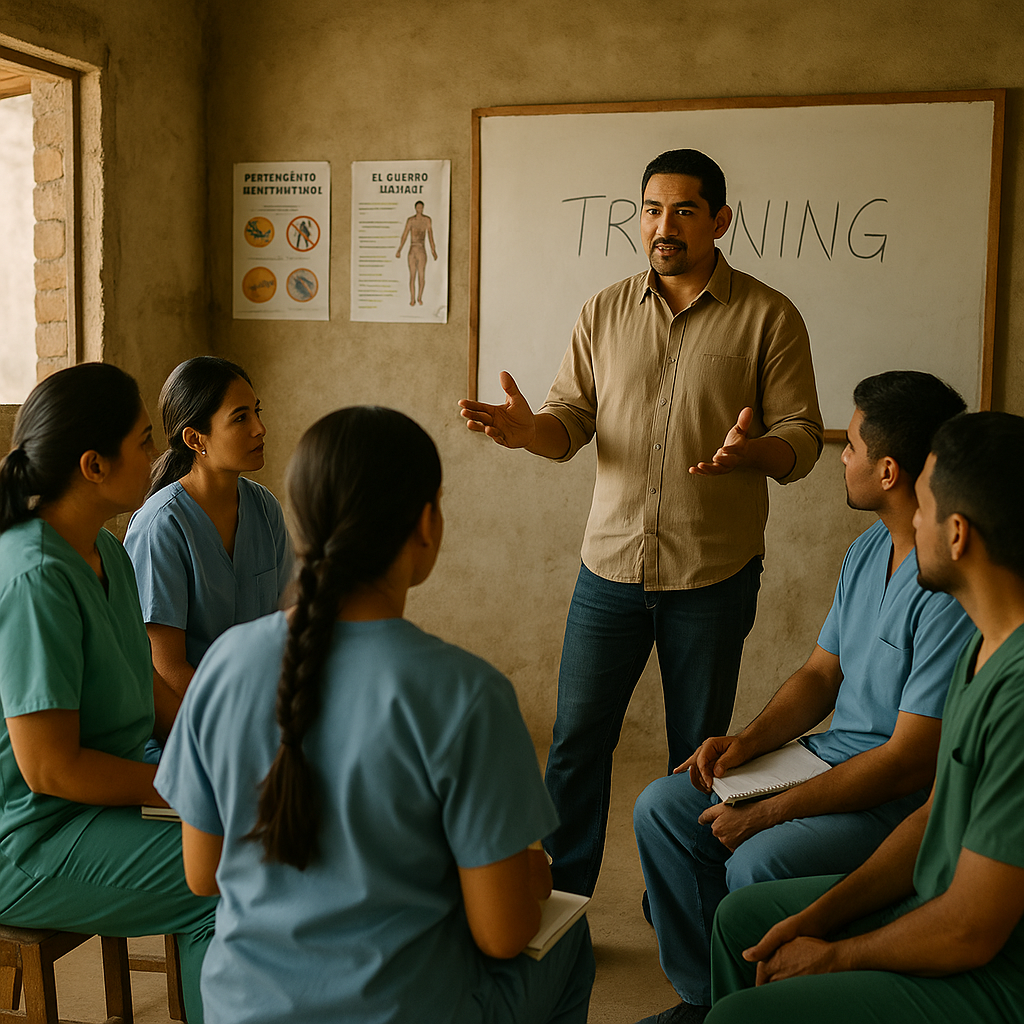
Written by Nadège Sheehan, PhD – Co-Founder & President of OneGuild Institute. She specializes in peacebuilding, health equity, and conflict-affected systems.
In conflict-affected or underserved areas, health professionals are often more than providers of care — they are anchors of trust, continuity, and social cohesion. When systems falter, they remain at the front lines, serving not only patients but entire communities seeking stability and reassurance.
This makes their role central not just to health outcomes, but to peacebuilding.
Health Workers as Connectors
Whether in a rural clinic, refugee camp, or under-resourced urban hospital, healthcare professionals routinely bridge divides — between families and systems, local knowledge and formal medicine, urgency and long-term prevention. In fragile settings, they may be the only consistent point of contact between the community and a broader institutional framework.
Investing in their capacity is therefore not simply a health intervention; it’s a peacebuilding measure.
Why Continuous Learning Matters
In today’s rapidly evolving landscape — from emerging diseases to shifting treatment protocols — staying current is a challenge even in the most resourced settings. But in communities marked by instability, the challenge is magnified.
Yet the need is just as urgent.
When health workers have access to ongoing training and knowledge exchange, they are better equipped to:
Education fosters agency, and agency fosters peace.
Strengthening Systems through Professional Development
Whether through local workshops, remote CME programs, peer exchanges, or global partnerships, supporting the continuous learning of health providers strengthens entire systems. It signals to communities that care is evolving — not stagnant — and that providers are not left behind.
Equipping professionals with updated skills is also a powerful tool to prevent burnout, support retention, and reinforce resilience, especially in conflict-affected environments.
Knowledge as Solidarity
Ongoing professional education is not only about science — it is also about solidarity. It links practitioners across borders, disciplines, and divides. When doctors, nurses, and educators in underserved communities participate in knowledge-sharing networks, they are no longer isolated. They are part of a global fabric of care — and contributors to a more stable, peaceful future.
A Strategic Investment
Peace is more than the absence of violence. It is the presence of systems people can rely on. Health professionals are a cornerstone of those systems.
Investing in their growth is a strategic, necessary choice — one that aligns clinical excellence with human dignity and long-term peace.
__________________________________________
➝ Read Next: Empowering Women Where They Are: Health Education as a Force for Peace
This article also appeared in the Peace & Health Initiative monthly newsletter. Subscribe here to receive future issues directly.